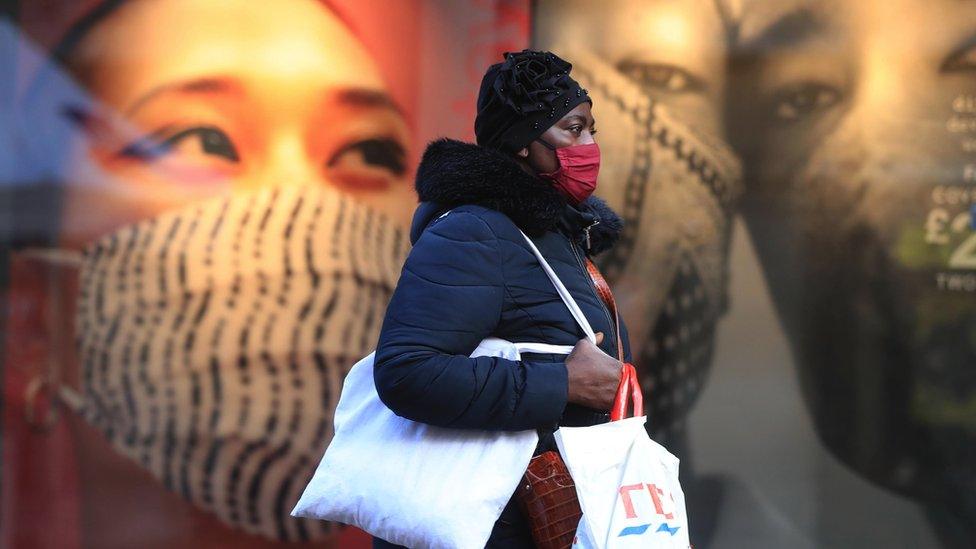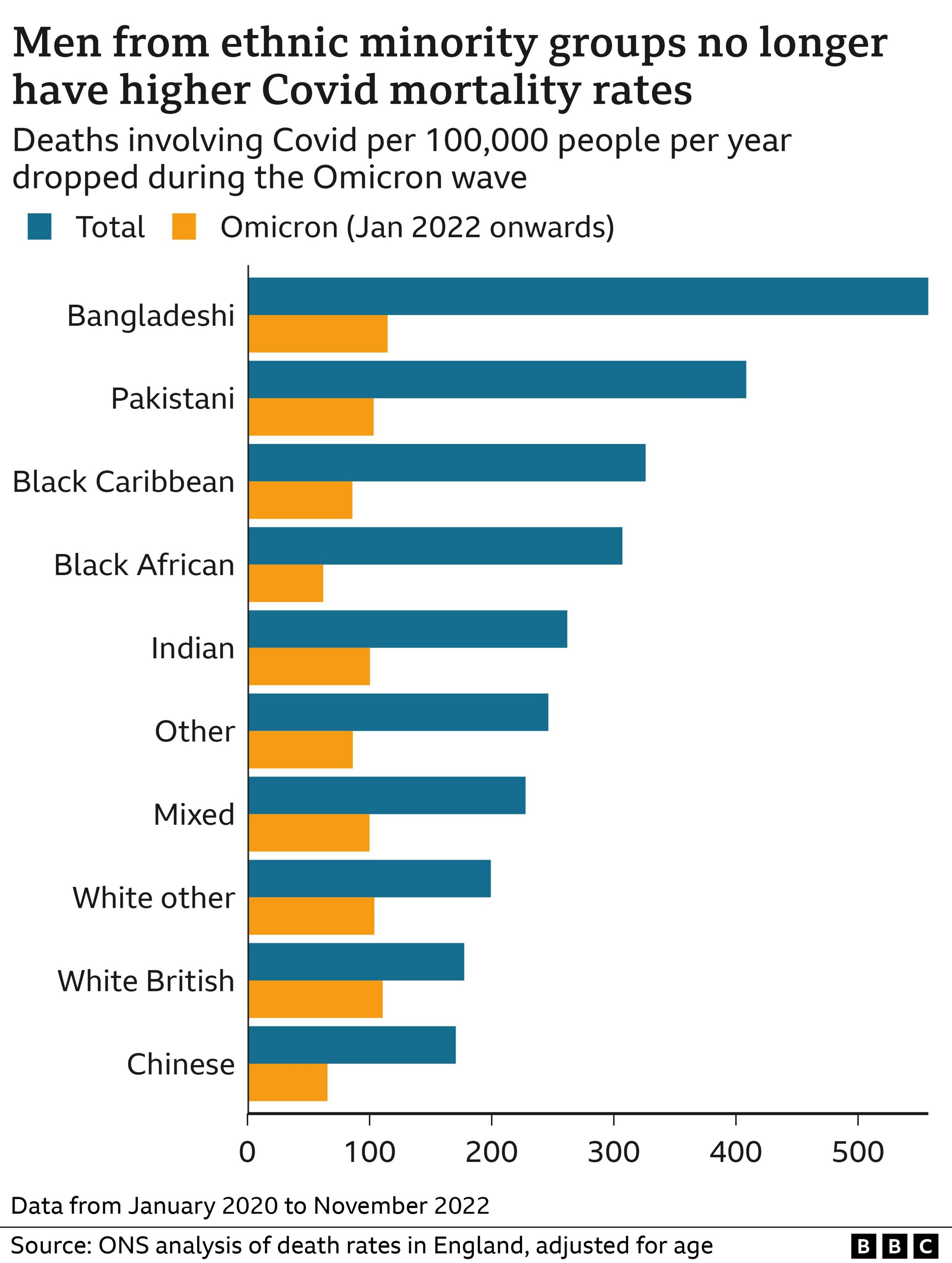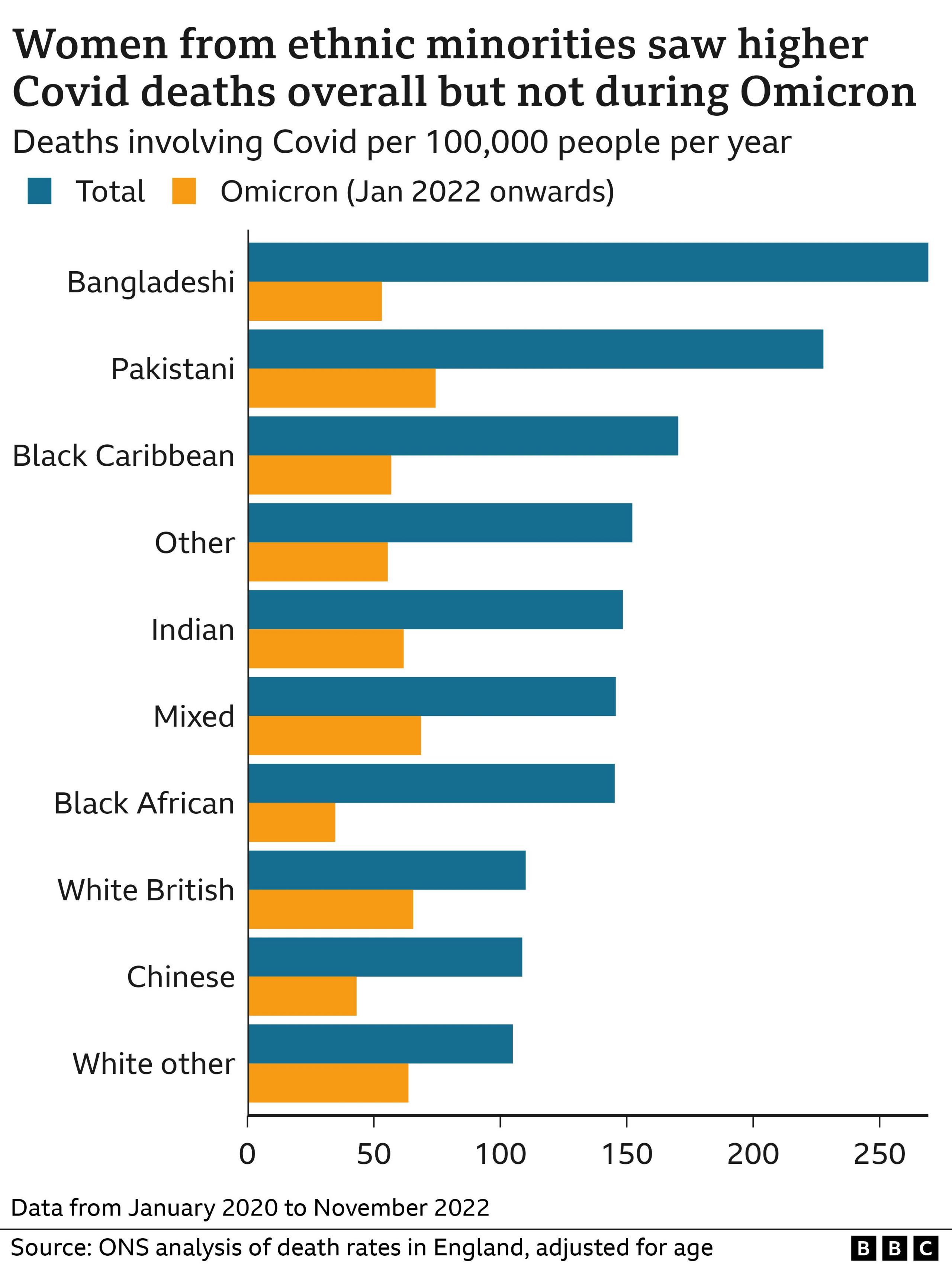Ethnic minority Covid death gap closes – ONS
- Published

In 2020, data showed black and Asian people were statistically more likely to die as result of Covid-19 than white people
People from ethnic minority backgrounds are no longer significantly more likely to die of Covid-19, new Office for National Statistics (ONS) data shows.
Analysts looked at mortality rates for different ethnic communities between January and November 2022, when Omicron was the dominant Covid variant.
Early in the pandemic, deaths involving coronavirus were higher among black and Asian people than white people.
The highest risk was among Bangladeshi, Black Caribbean and Pakistani groups.
Covid mortality rates for all ethnic minorities decreased last year. The latest data shows there is no significant statistical difference between the number of Covid deaths among ethnic minorities and the white population.
The ONS also said that "all cause" mortality rates - measuring how likely people are to die of any cause, including Covid-19 - have returned to pre-pandemic patterns.
The reasons for this change are complex, and experts say there are "various factors" to consider.
Dr Veena Raleigh, an epidemiologist and senior fellow at The King's Fund, told the BBC that at the start of the pandemic "we knew very little about [Covid-19], how it transmitted, and how to mitigate its spread and impact".
"The virus had its greatest impact on people who were most vulnerable or exposed to the infection - that was older people and people working in frontline jobs, key workers in the NHS, public transport etc. And of course, ethnic minorities are disproportionately working in those roles," she said.


"Initially the virus had a terrible impact in terms of mortality. But over time, we learned more about how this virus transmits. For example, various social measures to control the spread of infection were introduced, like mask-wearing and social distancing. So that helped to moderate ethnic differences.
"And then, of course, the vaccination programme came in. And although vaccination rates are lower in some ethnic minority groups, nonetheless, a significant proportion of the population is vaccinated - or has some immunity because they've been exposed to the virus.
"All of these factors have contributed to reducing ethnic differences in Covid-19 mortality over time."


Mortality rates are also lower in general with Omicron, in contrast to other variants.
A previous study from the ONS, published in the British Medical Journal last June, compared deaths from Omicron BA.1 with another variant, Delta.
It found that the risk of dying from Covid-19 was 66% lower for those who contracted Omicron than it was for patients who contracted Delta.
A spokesperson for the think tank Runnymede told the BBC: "Covid-19 was not just a health crisis; it was also a social and economic crisis.
"Unequal health outcomes are not confined to Covid-19, and longstanding racial and economic inequality is at the heart of understanding the pandemic.
"It is precisely because these inequalities are so systemic and interlinked that, when crisis hit, certain communities were impacted first, the hardest and in multiple ways."
- Published2 June 2020

- Published11 May 2022

- Published30 January 2023
